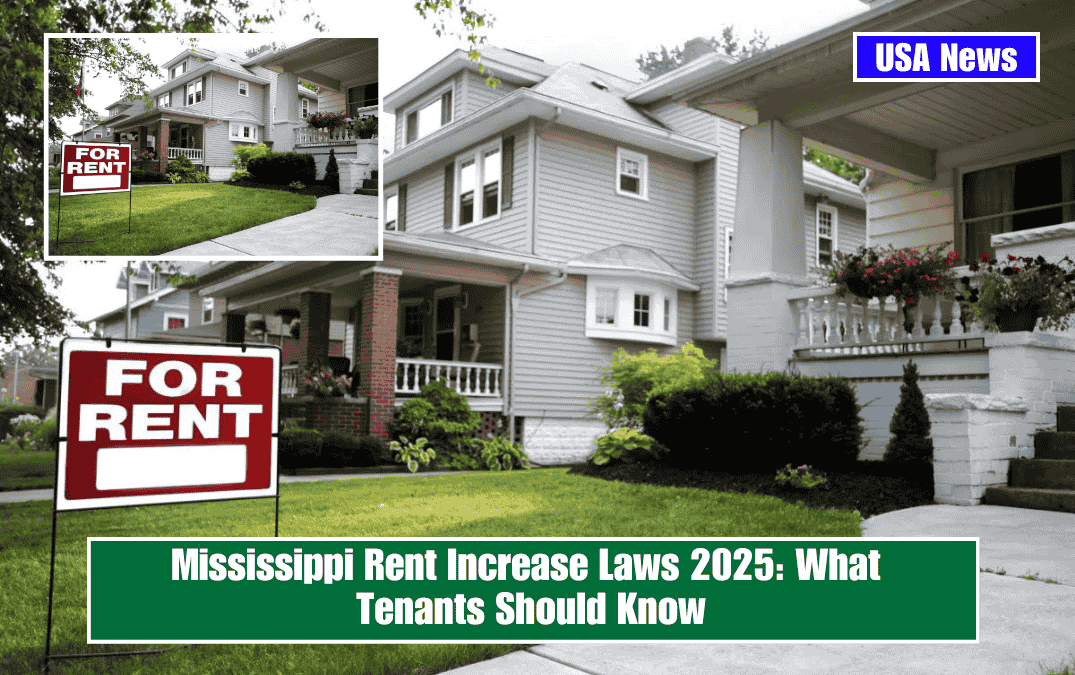Mississippi’s rent increase laws provide landlords with significant flexibility while offering tenants limited protections. Understanding these laws is essential for tenants navigating rental agreements in 2025. Here’s what tenants should know about rent increases in Mississippi.
No Rent Control Laws
Mississippi does not have rent control laws, meaning landlords can raise rents as much as the market will bear. State law prohibits cities and counties from enacting rent control ordinances, granting landlords broad discretion to set rental rates at lease renewal or for month-to-month agreements. This lack of regulation can result in substantial rent hikes, especially in areas experiencing housing demand surges.
Notice Requirements
While there are no limits on how much landlords can increase rent, Mississippi law mandates proper notice before implementing changes. For fixed-term leases, landlords must wait until the lease expires to raise rent. They must provide written notice at least 30 days before the end of the lease term.
For month-to-month tenancies, landlords must also give a minimum of 30 days’ written notice before a rent increase takes effect. Week-to-week tenants require only a seven-day notice.
Restrictions During Active Leases
Landlords cannot increase rent during an active fixed-term lease unless the lease explicitly allows adjustments. This ensures tenants have stability throughout the agreed rental period. However, at the end of the lease term, landlords are free to renegotiate rental rates without restrictions.
Intent and Discrimination Protections
Mississippi law prohibits landlords from raising rents as a form of retaliation or discrimination. For example, landlords cannot increase rent because a tenant requested repairs or exercised their legal rights. If tenants suspect a rent hike is retaliatory or discriminatory, they may seek legal counsel to dispute it.
Tenant Options for Unaffordable Rent Increases
Tenants facing substantial rent hikes have limited options due to Mississippi’s lack of caps on rental increases. They can attempt to negotiate with landlords for a more reasonable rate or explore alternative housing arrangements if the new rent exceeds their budget.
While there is no formal dispute resolution process for excessive increases, legal action may be warranted in cases of retaliation or discrimination.
Market-Driven Rental Rates
Mississippi’s rental market is entirely driven by supply and demand. Landlords can adjust rents based on market conditions without needing justification or approval from state authorities. This approach benefits landlords but can create challenges for tenants in competitive housing markets.
In Mississippi, tenants should be aware that landlords have significant freedom to raise rents at lease renewal or during month-to-month agreements. While proper notice is required, there are no statutory limits on how much rents can increase.
Tenants are protected from retaliatory or discriminatory increases but may face challenges in disputing large hikes due to the absence of rent control laws. Reviewing lease agreements carefully and staying informed about notice requirements and tenant rights is crucial for navigating rental changes effectively in Mississippi.
SOURCES:-
[1] https://www.steadily.com/blog/how-much-can-a-landlord-raise-rent-in-mississippi
[2] https://www.hemlane.com/resources/mississippi-rent-control-laws/
[3] https://www.steadily.com/blog/rent-increase-laws-regulations-mississippi
[4] https://www.hemlane.com/resources/mississippi-tenant-landlord-law/
[5] https://msdh.ms.gov/page/resources/20989.pdf









